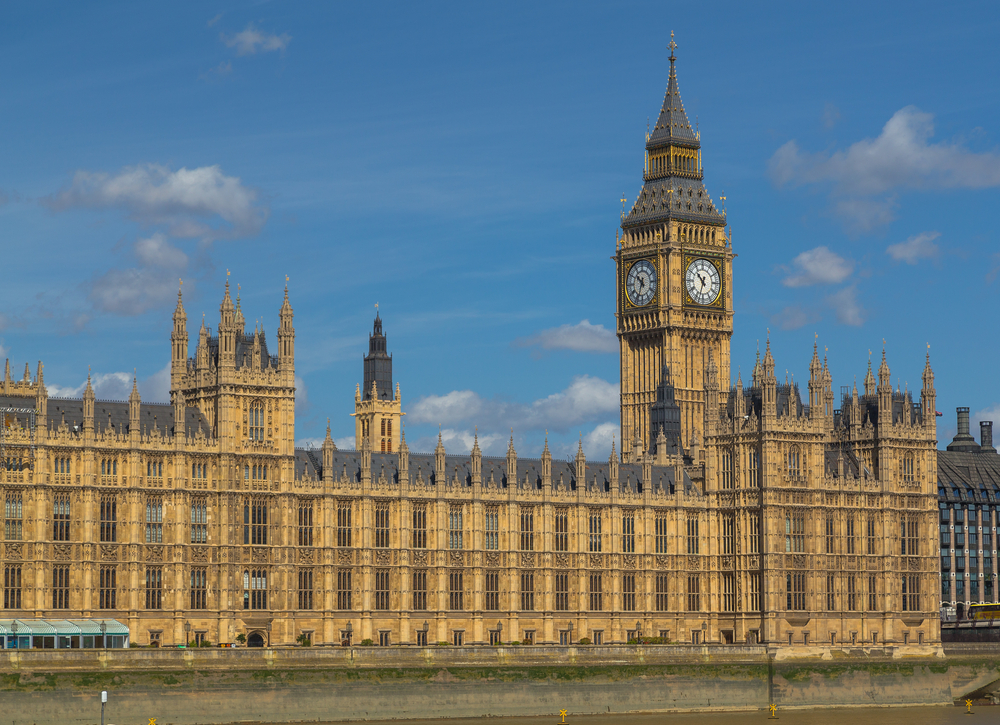Experts have branded this year’s Spring Budget “underwhelming” after Chancellor Philip Hammond failed to address shortcomings in the property market that would help first-time buyers. John Goodall, CEO and co-founder of Landbay, said: “For all the talk of easing the pressure on affordability in last month’s housing white paper, Hammond’s Budget was underwhelming to say […]
 Experts have branded this year’s Spring Budget “underwhelming” after Chancellor Philip Hammond failed to address shortcomings in the property market that would help first-time buyers.
Experts have branded this year’s Spring Budget “underwhelming” after Chancellor Philip Hammond failed to address shortcomings in the property market that would help first-time buyers.
John Goodall, CEO and co-founder of Landbay, said: “For all the talk of easing the pressure on affordability in last month’s housing white paper, Hammond’s Budget was underwhelming to say the least.
“By not raising the stamp duty threshold, the Chancellor has missed a valuable opportunity to improve access to the housing ladder for millions of aspiring homeowners in the UK, for many of whom the tax is the final straw when facing prices that continue to climb.”
There have recently been calls from many in the property industry to scrap stamp duty for first-time buyers to help them get on the housing ladder.
Stamp duty increases the already significant costs for those looking to buy, exacerbating affordability issues in a market where house prices have outpaced wage growth.
According to research from Yorkshire Building Society, stamp duty was paid by 74% of first-time buyers last year, significantly more than the 53% paying the tax in 2006.
The proportion of first-time buyers able to buy a home under the stamp duty threshold has almost halved in just a decade, as they increasingly struggle to find properties under £125,000.
“Stamp duty is a significant barrier to liquidity in the market and any increase to the threshold would help to reverse the falling home ownership numbers and transaction volumes. I hope the situation is reviewed in the Autumn Budget,” said Goodall.
Daniel Hegarty, CEO and co-founder of digital mortgage broker habito, said more investment in Help to Buy and Shared Ownership schemes would have ensured access to new homes for a wider cross-section of the population.
“The increase in the national living wage and social support for families will certainly help to relieve financial pressure, but getting on the property ladder is still out of reach for many due to increases in inflation and rising property prices. Record-low mortgage rates have a shelf-life and it’s likely their expiration date will come more quickly than the government is prepared for,” he said.
Paul Smith, CEO of haart estate agents, said it was a missed opportunity to create “fundamental reform to the UK’s long-suffering property market”.
“The Housing Minister merry-go-round has left housing issues at the periphery of government thinking and strategy. Continually kept at an arm’s length, they’re incapable of tackling the deeper seated issues within housing market – leading to a plethora of initiatives that that tamper with rather than tactically reform the market,” he said.
“Whilst it’s good to see the government committing to increase funding for infrastructure, including more school places, which will certainty increase housebuilders appetites – what we really need to see are stamp duty holidays and tax reliefs to increase investment opportunities, expanding the pipelines of housebuilders and introducing fluidity into the market.”
National Insurance
The Chancellor also announced an increase in National Insurance for self-employed people.
From 2018, Class 2 NICs will be abolished and Class 4 NICs will rise by 1% to 10% and then to 11% in April 2019.
Nigel Payne, managing director of mortgage packager TFC Homeloans, said the rise would make it more difficult for the self-employed to get a mortgage.
He said: “We already know that the self-employed are not adequately served by the mainstream mortgage market, facing challenges in verifying their income and proving affordability.
“The measures announced could exacerbate these challenges, and make it even more important that self-employed borrowers can access specialist mortgage funding as they become increasingly distanced from high street lenders.”
Alan Cleary, managing director of Precise Mortgages, said: “This attack on the growing self-employed population fails to recognise that self-employed workers do not enjoy the same benefits as the employed, such as sick pay and holiday pay.
“One of the impacts could be that self-employed people may not be able to borrow as much money to buy their home as they will have less net income. Self-employed workers are already at a disadvantage to their employed peers when it comes to mortgages and this latest move does nothing to help.”
Buy-to-let
Despite hopes from landlords that the incoming mortgage tax relief changes would be reversed, there was no mention of this from the Chancellor.
Mortgage interest relief for residential buy-to-let properties is set to be reduced to the base income tax rate, which is 20%.
It is due to be phased in over a four-year period starting from April 2017. Landlords are currently able to claim tax relief on the top rate of tax of up to 45%.
Steve Bolton, founder of Platinum Property Partners, said attacking landlords and putting pressure on the private rental sector would hinder efforts of those renting to get on to the property ladder.
“Preventing landlords from buying homes will not result in a wealth of properties becoming available for first-time buyers or mean that tenants suddenly have the required deposit to buy,” he said.
“There is a fundamental misunderstanding of how the BTL sector operates at the heart of this policy and it also completely contradicts the importance placed on the rental sector in the government’s recent housing white paper. When this tax was introduced in Ireland, rents soared until the government was forced to repeal its policy. The same will undoubtedly happen in the UK.”
James Davis, CEO and founder of online lettings agency Upad, said it was disappointing to not see a U-turn on the “catastrophic decision” by the government to ban lettings agent fees.
“As predicted, rising rents are already on the cards for long suffering tenants with renting now a necessity, as home ownership is out of reach for most Millennials,” he said.
“Tenants are in some cases already paying up to two thirds of their salary on rent, whilst salaries have stayed stagnant.
“Landlords have been used as a political football in the last 12 months, with buy-to-let taxes set to increase from April and no announcement of this being blocked today. Landlords need attracting back into the space rather than being pushed away.
“Buy-to-let landlords should be enticed through tax incentives, rather than hiking stamp duty, to bring the rental market back into equilibrium.”














